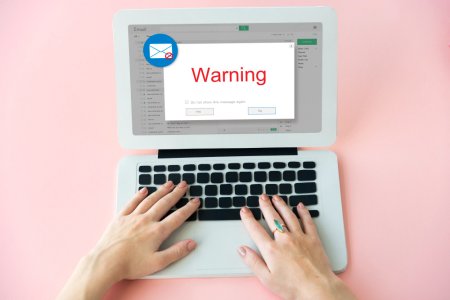Do these scandalous emails threaten to expose you? Authorities warn against this terrifying scam
By
Seia Ibanez
- Replies 17
In a world where technology connects us like never before, it also opens doors to new risks that demand our attention.
Among the growing concerns in this digital era is a disturbing scam targeting internet users with threats designed to exploit their privacy and trust.
Consumer Protection WA has issued a stark warning about a surge in scam emails that threaten to expose intimate videos of individuals watching adult content online.
More than 70 reports have been made on this alarming trend since September, and it's crucial that we all stay vigilant.
The scam operates by sending emails designed to instil panic, coercing recipients into paying a ransom in Bitcoin to keep their supposed secrets safe.
These emails are not just random threats; they are personalised with details such as names, dates of birth, addresses, and phone numbers to appear more credible.
It's believed that the scammers have harvested this information from recent data breaches.
One such email brazenly begins by telling the recipient that the sender ‘ain’t playing games’.
‘I actually placed Malware on a porn website, and you accessed it to watch,’ the email read.
‘Been keeping tabs on your pathetic life for a while now.’
‘Yeah, Yeah, I’ve got footage of you doing embarrassing things in your house (nice setup, by the way),’ the email continued.
‘I then developed videos and screenshots where on one side of the screen, there’s whatever garbage you had been watching, and on the other part, it’s you **** off (sic).’
‘With just a single click, I can send this video to all of your contacts.’
‘Your dirty secret will remain your secret. I will wipe everything clean once you come through with the payment.’
The scammers typically demand a hefty sum, often around $2000 USD ($3055 AUD), to be sent to a specified Bitcoin wallet.
However, Consumer Protection WA stresses that there is no evidence that these cybercriminals have actual access to webcams or personal computers.
If you receive such an email, it's imperative that you do not respond or send any money. Instead, report the incident to the authorities immediately.
You can contact Consumer Protection WA or report the email to Cyber Crime.
For those whose personal information has been stolen or who need assistance recovering from a scam, there are resources available, such as ID Care, which can be reached at 1800 595 160.
You may also report the scam to Scamwatch here.
Head over to our Scam Watch forum to stay updated with the latest tricks scammers use to deceive people out of their money and sensitive details.

We'd love to hear from you, our valued Seniors Discount Club members. Have you encountered similar scams? How do you protect your online privacy? Share your experiences and tips in the comments below.
Among the growing concerns in this digital era is a disturbing scam targeting internet users with threats designed to exploit their privacy and trust.
Consumer Protection WA has issued a stark warning about a surge in scam emails that threaten to expose intimate videos of individuals watching adult content online.
More than 70 reports have been made on this alarming trend since September, and it's crucial that we all stay vigilant.
The scam operates by sending emails designed to instil panic, coercing recipients into paying a ransom in Bitcoin to keep their supposed secrets safe.
These emails are not just random threats; they are personalised with details such as names, dates of birth, addresses, and phone numbers to appear more credible.
It's believed that the scammers have harvested this information from recent data breaches.
One such email brazenly begins by telling the recipient that the sender ‘ain’t playing games’.
‘I actually placed Malware on a porn website, and you accessed it to watch,’ the email read.
‘Been keeping tabs on your pathetic life for a while now.’
‘Yeah, Yeah, I’ve got footage of you doing embarrassing things in your house (nice setup, by the way),’ the email continued.
‘I then developed videos and screenshots where on one side of the screen, there’s whatever garbage you had been watching, and on the other part, it’s you **** off (sic).’
‘With just a single click, I can send this video to all of your contacts.’
‘Your dirty secret will remain your secret. I will wipe everything clean once you come through with the payment.’
The scammers typically demand a hefty sum, often around $2000 USD ($3055 AUD), to be sent to a specified Bitcoin wallet.
However, Consumer Protection WA stresses that there is no evidence that these cybercriminals have actual access to webcams or personal computers.
If you receive such an email, it's imperative that you do not respond or send any money. Instead, report the incident to the authorities immediately.
You can contact Consumer Protection WA or report the email to Cyber Crime.
For those whose personal information has been stolen or who need assistance recovering from a scam, there are resources available, such as ID Care, which can be reached at 1800 595 160.
You may also report the scam to Scamwatch here.
Head over to our Scam Watch forum to stay updated with the latest tricks scammers use to deceive people out of their money and sensitive details.
Key Takeaways
- Consumer Protection WA has observed an increase in scam emails threatening to release videos of victims watching adult content.
- The scammers attempt to extort a ransom in Bitcoin by claiming they have compromising footage and personal details of the victims.
- Consumer Protection warns that these personal details likely originate from recent data breaches and that the threats are not based on actual webcam or computer access.
- Those targeted by the scam should not respond or pay any money, but instead report the emails to the authorities and seek help if personal information has been compromised.










